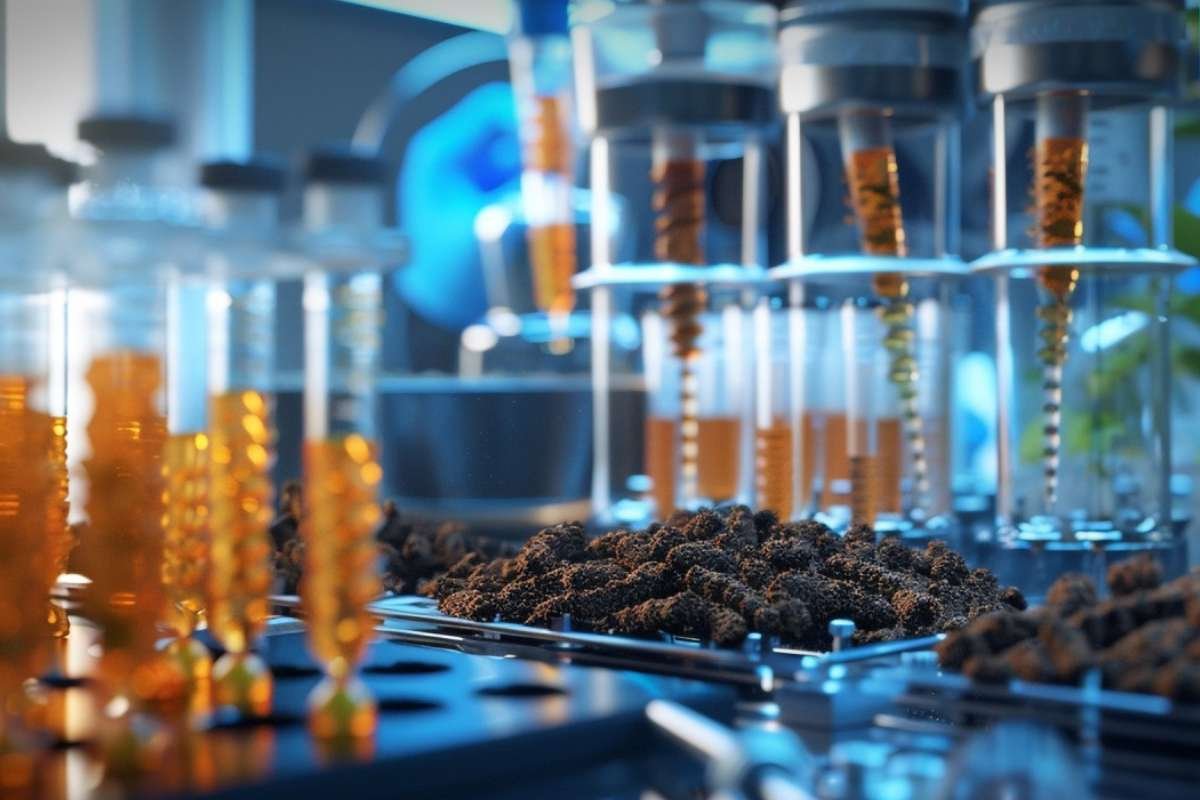In today’s modern world, biotechnology has become an emerging field that is transforming and growing extraordinarily, it has also brought some advancement in genomics. The study of genomics is more of a widespread analysis of genomes, or an organism. The entire set of DNA has not just developed our understanding of biology but also restructured our approach toward medicine, agriculture, and environmental science. Genomics in biotechnology is evolving and changing the way we fight disease, grow crops, and sustain ecological balance, it has brought about many changes by making a breakthrough scientifically.
In this article, we study and understand the impact of genomics on biotechnology. How to implement it and what is the potential of this practice in the future.
Understanding Genomics and Its Relevance to Biotechnology
At its core, genomics is the branch of molecular biology focused on the structure, function, evolution, and mapping of genomes. In the past, studying DNA was often limited to single genes or specific mutations. However, genomics uses advanced technologies like high-throughput sequencing to analyze all of an organism’s DNA at once, providing a more holistic view. This approach is essential for understanding complex biological processes and designing interventions that can influence entire biological systems.
In biotechnology, genomics acts as a foundation for numerous applications, such as developing targeted treatments for diseases, creating genetically modified organisms (GMOs) for agricultural use, and improving bioremediation processes to manage environmental pollution. Genomics in the field of biotechnology has thus become a pivotal area, sparking innovations that span industries and disciplines.
Genomics in Biotechnology: Transforming Medicine

One of the most promising areas where genomics in biotechnology has made substantial impacts is in healthcare. Personalized medicine, which tailors medical treatment to individual genetic profiles, is a direct result of genomics. By understanding a patient’s genetic makeup, doctors can predict susceptibility to certain diseases, determine the most effective treatments, and even anticipate how an individual will respond to specific medications.
For example, genomics has enabled scientists to identify genetic mutations linked to conditions like cancer, heart disease, and diabetes. For cancer treatment, this means that oncologists can analyze the tumor’s genetic profile and select therapies that target specific genetic mutations rather than using a generalized approach. This targeted therapy has been shown to improve patient outcomes significantly.
Moreover, genomics in biotechnology is playing a crucial role in the development of gene therapies. These therapies work by correcting or replacing faulty genes responsible for diseases. Successes in gene therapy have led to groundbreaking treatments for conditions that were once thought incurable, such as certain forms of inherited blindness and blood disorders like sickle cell anemia.
Agricultural Applications of Genomics in Biotechnology
The agricultural sector is another field that has benefited immensely from the integration of genomics into biotechnology. With the global population expected to reach nearly 10 billion by 2050, there is an urgent need to increase food production sustainably. Genomics provides the tools to meet this demand by enabling the creation of genetically modified crops that are more resilient, nutritious, and higher-yielding than their conventional counterparts.
For instance, by examining the genomes of plants, scientists can identify genes responsible for traits like drought tolerance, disease resistance, and faster growth rates. Using techniques like CRISPR gene editing, these genes can be modified or transferred between species to produce crops that thrive in harsh conditions or require fewer resources, like water or pesticides. Crops developed through genomics in the field of biotechnology have not only increased food security but have also reduced the environmental footprint of agriculture, making it more sustainable.
Furthermore, genomics is being used to improve livestock. Similar to crop improvement, genomics allows breeders to select favorable traits, such as disease resistance, faster growth, and better meat quality, leading to healthier, more productive animals. This has vast implications for the food industry, ensuring a more efficient production cycle with reduced waste and better animal welfare.
Environmental Applications: Genomics in Bioremediation and Conservation

Genomics in biotechnology is also making significant strides in addressing environmental challenges. Bioremediation—the process of using organisms to clean up pollutants—has become more effective with the application of genomics. By studying the genomes of microbes, scientists can identify and enhance the genes responsible for breaking down pollutants like oil, heavy metals, and plastics. This enables them to create “super-microbes” tailored for specific types of pollution, leading to faster and more effective cleanup efforts.
Beyond pollution control, genomics is proving invaluable in conservation biology. Genetic diversity is critical for species survival, especially in the face of environmental changes. Genomics allows conservationists to study the genetic makeup of endangered species, identifying the genetic diversity within populations and helping design breeding programs that increase genetic resilience. By applying genomics in biotechnology to conservation efforts, scientists are better equipped to protect biodiversity and maintain ecological balance.
Genomics in Biotechnology: The Future Ahead
The future of genomics in the field of biotechnology looks promising, with numerous potential applications on the horizon. Advances in gene-editing technologies, such as CRISPR-Cas9l, are making it possible to precisely edit genomes in ways once thought unimaginable. This technology has opened up possibilities for developing cures for genetic diseases, creating “designer” crops that are even more tailored to specific climates and conditions, and engineering microorganisms that can produce biofuels.
Artificial intelligence (AI) and machine learning are also accelerating progress in genomics. By analyzing vast amounts of genetic data, AI algorithms can detect patterns and correlations that would be difficult for humans to identify. This can lead to faster drug discovery, more accurate disease diagnosis, and optimized breeding techniques for both plants and animals. AI-powered genomics in biotechnology is expected to bring about new treatments, preventive healthcare measures, and efficient agricultural practices that could redefine industry standards.
However, the integration of genomics into the field of biotechnology also raises ethical considerations. Questions about genetic privacy, the potential for designer babies, and the environmental impacts of genetically modified organisms must be carefully addressed. Policies and regulations will play a crucial role in ensuring that advancements in genomics are used responsibly and equitably.
Challenges and Considerations

Despite its immense potential, genomics in biotechnology faces several challenges. Sequencing and analyzing large genomic datasets require significant computational resources and expertise, limiting access for smaller institutions or developing countries. The cost of genomic research, while decreasing, remains a barrier to widespread application, particularly in low-income settings.
Moreover, the genetic manipulation of organisms, while beneficial in many ways, is still a topic of debate. For example, concerns about the long-term effects of genetically modified organisms (GMOs) on human health and the environment persist. While research has shown that many GMOs are safe, public apprehension and regulatory hurdles remain. As the field of genomics in biotechnology progresses, transparent communication and rigorous testing will be essential to maintain public trust and ensure safe, ethical advancements.
Conclusion
Genomics in biotechnology has opened doors for a new era of innovative and scientific exploration. Genomics has always been leading in solving pressing issues to personalizing medicines, agricultural resilience, and environmental conservation. Genomics has been a torchbearer in taking the first step towards a future where science, technology, and nature are working together to uncover possibilities that seem out of reach earlier by reading, understanding, and modifying genomics. This has led to enhancing human life and sustaining our planet.
As time goes by the development has continued to improve brought upon by Genomics in biotechnology. This has reshaped our approach toward our health, food security, and environmental preservation. Some challenges need to be overcome but the potential benefits have overshadowed the risk. This has been a powerful tool that is taking human life towards the path of innovation with ethical practices, we are now ready to step foot into a healthier and sustainable future.







